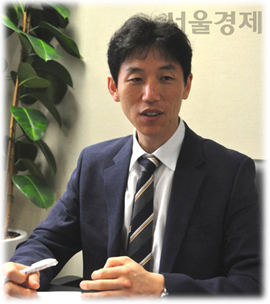| 일 | 월 | 화 | 수 | 목 | 금 | 토 |
|---|---|---|---|---|---|---|
| 1 | 2 | 3 | 4 | 5 | ||
| 6 | 7 | 8 | 9 | 10 | 11 | 12 |
| 13 | 14 | 15 | 16 | 17 | 18 | 19 |
| 20 | 21 | 22 | 23 | 24 | 25 | 26 |
| 27 | 28 | 29 | 30 | 31 |
- political organization
- Order of Choice
- Canonical Politics
- Samjae Capacity
- Political Regimes
- politics
- Orderliness of Choice
- new political science
- Political power
- Mathematical Model of political science
- survival process theory
- the 3rd Law of politics
- Differences in Individual Abilities and Tendencies
- Political Regime
- the 2nd law
- power and organization
- Cohesion Force
- Mathematical Model of politics
- Political Change
- Regime Change
- Task Delegates of the Ruler: Inner Circle
- politics and war
- Operation of the 2nd Law
- politics of Inner Circle
- Power
- political phenomena
- 1st Law of politics
- mechanism of politics
- Samjae Capacities
- Value Systems
- Today
- Total
New Political Science
(3) a. Mathematical Model of Political Regime Change 본문
(3) a. Mathematical Model of Political Regime Change
Political Science 2023. 12. 14. 02:54(3) Mathematical Model of the 3rd Law
a. Mathematical Model of Political Regime Change
The key content that the 3rd law of political phenomena seeks to explain is the creation and change of the rule system (political organization). In summary, the following can be implicitly stated as the content explained by the 3rd law of political phenomena:
[Ch.3.317] The creation and maintenance of a political regime is determined by the profit relationships among political actors, and therefore, if the political regime is against the profits of a more powerful group, political change occurs, which incurs political and social costs.
As discussed earlier, political actors cooperate through the rule system in order to increase their own profits. This is a political regime that is generally formalized as a political system that includes constitutional and non-constitutional elements. As previously mentioned, it is fundamentally a collection of rules and nothing more. Therefore, if the understanding of the relationship among political actors deviates significantly from the content defined by the political regime, the political regime changes, incurring costs such as the efforts of the members and economic burdens. Consequently, members tolerate small losses and maintain the political regime.
If R is the regime of political actor g, and R changes to R*, I denote it as \( R \rightarrow R* \). Let \( \vec{{H_g ^{R \rightarrow R*}}} \) be the political harvest(gain) and \vec{{C_g ^{R \rightarrow R*}}} be the political cost resulting from such regime change. Then the 3rd law of Politics can be expressed as follows:
[Fmla.3.3.1] \( \begin{bmatrix}
\frac{d}{dt}\vec{{H_g ^{R \rightarrow R*}}} \\
\\
\frac{d}{dt}\vec{{C_g ^{R \rightarrow R*}}} \end{bmatrix} = \begin{bmatrix}
\frac{d}{dt}\sum \vec{{P_m ^{R \rightarrow R*}}} \\
\\
\begin{pmatrix}
t_0\sim t_1 : \frac{d}{dt}\vec{{S_{TB}}_g} \\
t_1 \sim : 0
\end{pmatrix}
\end{bmatrix} \)
Political profit refers to the survival capacity obtained by subtracting costs from political harvest( \( P_m = H_m - C_m \) )[Fmla.1.3], and therefore \( \vec{{P_g ^{R \rightarrow R*}}} \) refers to the political profit that political member()s obtain when the political regime changes from R to a new regime R*. The political harvest \( \vec{{H_g ^{R \rightarrow R*}}} \) obtained by the political organization during regime change is defined as the sum of the political profit of the organization's members( \( \sum \vec{{P_m ^{R \rightarrow R*}}} \) ).
\( \vec{S_{TB}} \) refers to "repression force" which is the capacity to force political actors to comply with the rules of the political regime. For instance, the activity of maintaining public order and the justice system are the most important components of repression force. As seen in the differential equation in [Fmla.3.3.1], repression force( \( \vec{S_{TB}} \) ) is not necessarily present in all political situations. When reform or change is implemented from above, repression force is almost reduced to zero. For example, the German regime in the 17th century had a very weak repression force, even though it was not perfect. Germany had a federal court in Bečov and an imperial court in Vienna, and the upper and lower courts performed their duties relatively well, so no revolution occurred in Germany. This was also due to the flexibility of the rulers, who willingly rectified the unreasonable aspects of their regime.
In general, repression force tends to increase as the size of the political organization increases, and also tends to increase in the short term as efforts to change the regime occur. As this force consumes the survival capacity of the political organization, it increases to a certain extent and then suddenly disappears. When anti- regime activities or protests persist and the survival capacity, such as government budgets and legitimacy, are depleted (at time point ), the police force suddenly disappears.
'Mechanism of Politics' 카테고리의 다른 글
| c. Mathematical Model and Implications of the 3rd Law (0) | 2023.12.14 |
|---|---|
| b. The Interrelationships of Factors in Regime Change (0) | 2023.12.14 |
| b. ㉡ Important Aspects of the 3rd Law (0) | 2023.12.14 |
| b. ㉠ Phenomena Implied by the 3rd Law (0) | 2023.12.14 |
| a. ㉤ Repression Force (0) | 2023.12.14 |


